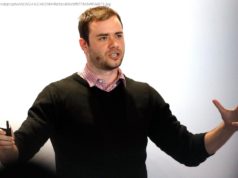In January, Facebook announced that it would be changing its feed algorithm to promote users’ well-being over time spent browsing content. That’s a relatively new approach for a company whose ethos once centered around “move fast, break things.” It wasn’t all that long…
In January, Facebook announced that it would be changing its feed algorithm to promote users’ well-being over time spent browsing content. That’s a relatively new approach for a company whose ethos once centered around “move fast, break things.”
It wasn’t all that long ago (approximately a year and a half before the algorithm change) that Facebook VP Andrew “Boz” Bosworth, published an internal memo called “The Ugly,” which was circulated throughout the company. In it, Boz made it clear to employees that connecting people (i.e. growth) is the main focus at Facebook, at all costs.
Buzzfeed first published the memo, which said:
He goes on:
Facebook launched in 2004 and ushered in a honeymoon period for users. We reveled in uploading photos from our digital cameras and sharing them with friends. We cared about each and every notification. We shared our status. We played FarmVille. We diligently curated our Likes.
But the honeymoon is over. Facebook grew to 1 billion active users in 2012. The social network now has over 2 billion active users. A growing number of people get their news from social media. The size and scope of Facebook is simply overwhelming.
And we’ve been well aware, as users and outsiders looking in on the network, that just like any other tool, Facebook can be used for evil.
But there was still some question whether or not Facebook leadership understood that principle, and if they did, whether or not they actually cared.
For a long time, perhaps too long, Facebook adhered to the “Move fast, break things” mentality. And things have certainly been broken, from fake news circulated during the 2016 Presidential election to the improper use of user data by third-party developers and Cambridge Analytica. And that’s likely the tip of the iceberg.
The memo was written long before the shit hit the fan for Facebook. It was published following the broadcast of Antonio Perkins’ murder on Facebook. This was back when Facebook was still insisting that it isn’t a media company, that it is simply a set of pipes through which people can ship off their content.
What is so shocking about the memo is that it confirms some of our deepest fears. A social network, with a population greater than any single country, is solely focused on growth over the well-being of the society it’s built. That the ends, to be a product everyone uses, might justify the means.
Facebook has tried to move away from this persona, however gently. In late 2016, Zuckerberg finally budged on the idea that Facebook is a media company, clarifying that it’s not a traditional media company. Last year, the company launched the Journalism Project in response to the scary growth of fake news on the platform. Zuckerberg even posted full-page print ads seeking patience and forgiveness in the wake of this most recent Cambridge Analytica scandal.
While that all seems like more of a public relations response than actionable change, it’s better than the stoic, inflexible silence of before.
After Buzzfeed published the memo, Boz and Zuckerberg both responded.
Boz said it was all about spurring internal debate to help shape future tools.
Zuck had this to say:
If Boz wrote this memo to spark debate, it’s hard to discern whether that debate led to real change.
The memo has since been deleted, but you can read the full text below:






